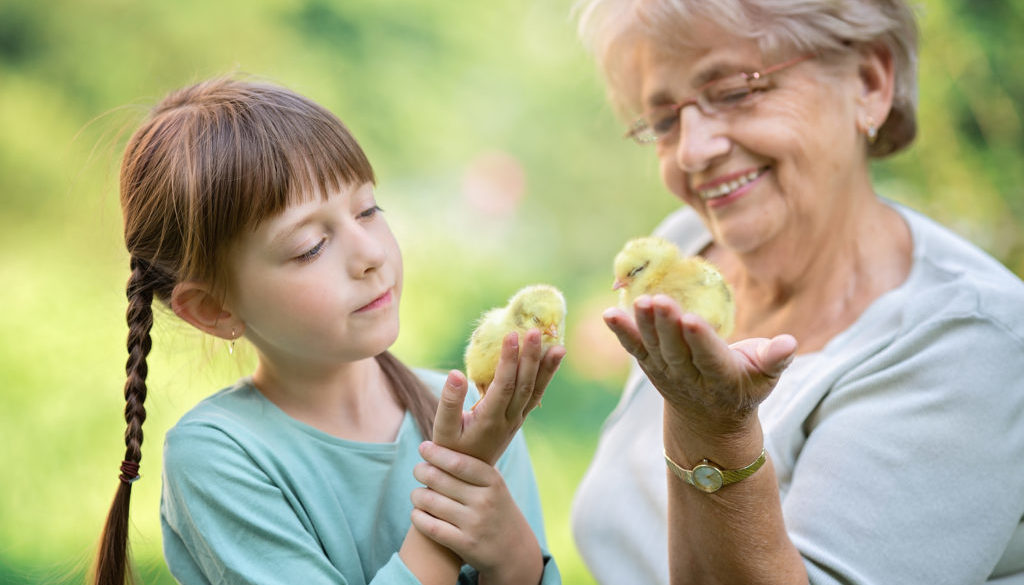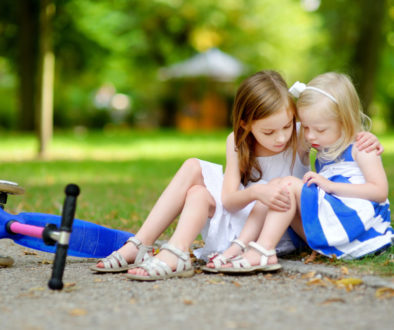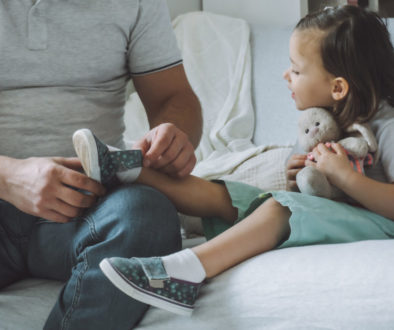Promote Empathy and Kindness in Children

Empathy is the ability to imagine how someone else is feeling in a particular situation and respond with care. This is a very complex skill to develop. Try these simple tips to help support infants and toddler’s development of empathy and the understanding that others have different thoughts and feelings than their own.
- Nurture a strong secure attachment with your child and infant by being a responsive, loving, and empathetic caregiver.
- Focus on being a parent who can read and understand your children’s emotional cues and empathize with their feelings. Look underneath the presenting feelings to help the child identify the other underlying emotions. For example, a child who is irritable and grumpy during the days before a move is probably also feeling scared, worried, and anxious. In addition, this child is likely experiencing some loss, grief, and sadness.
- Discuss feelings and explain why people are feeling the way they are. Use movies, television, and books to help children understand and label other people’s feelings.
- Let children know how their behavior might impact the feelings of others.
- Ask children to imagine how they would feel if they were in the other person’s place.
- Encourage children to think about what actions they can take to rectify the situation or what they could have done differently to prevent hurting the other person. If they cannot think of how, they should have behaved differently or how they can change the situation, parents need to provide suggestions.
- Encourage children to identify with positive behaviors and point out examples of people who are kind-hearted and those who are not. “Think of a person who is someone you admire, someone who is kind.”
- Model empathy and altruism in your relationships with others.
- Set up projects for your whole family to participate in. For example: sponsoring a child overseas, sweeping an elderly neighbor’s walk, bringing a meal for a friend who is ill or grieving, etc.
- Warm, empathic, attentive parents who value and encourage kindness and empathy raise children who are empathic.
The benefits of empathy and kindness for kids are clear. Children who are kind to others feel happier, more connected, and experience less stress. Nurturing kindness in children is key, and daily life provides plenty of opportunities for practice. Most importantly, be sure to model kindness when you interact with others, as your child will naturally watch and learn.





